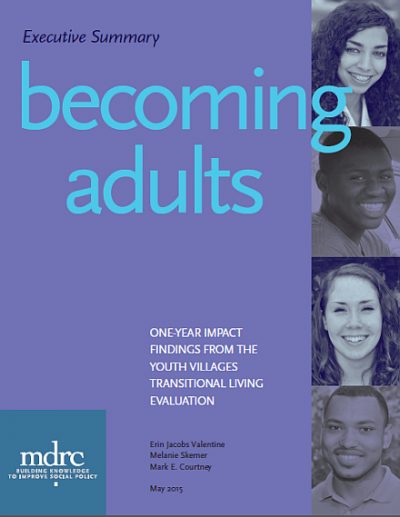Starting Line
Young adults with histories of foster care or juvenile justice custody don't succeed as well in many areas as their non-care/custody peers.

Kids in state custody, through foster care or the juvenile justice system, fare far worse in adulthood than their non-custodial peers. Transitional, independent living arrangements are trying to change that by giving these kids real life experience in a controlled environment. This report presents MDRC’s evaluation of one such program — the Transitional Living program located in Tennessee and operated by Youth Villages — to determine if it is actually making a difference.
Young people who have spent time in foster care or juvenile justice custody have an uphill climb as they enter adulthood. Kids leaving state custody tend to have little financial or social support. Many of them continue to suffer from previous trauma of the foster care or juvenile justice system. Given such circumstances, it is not surprising that these young people face troubling outcomes as adults.